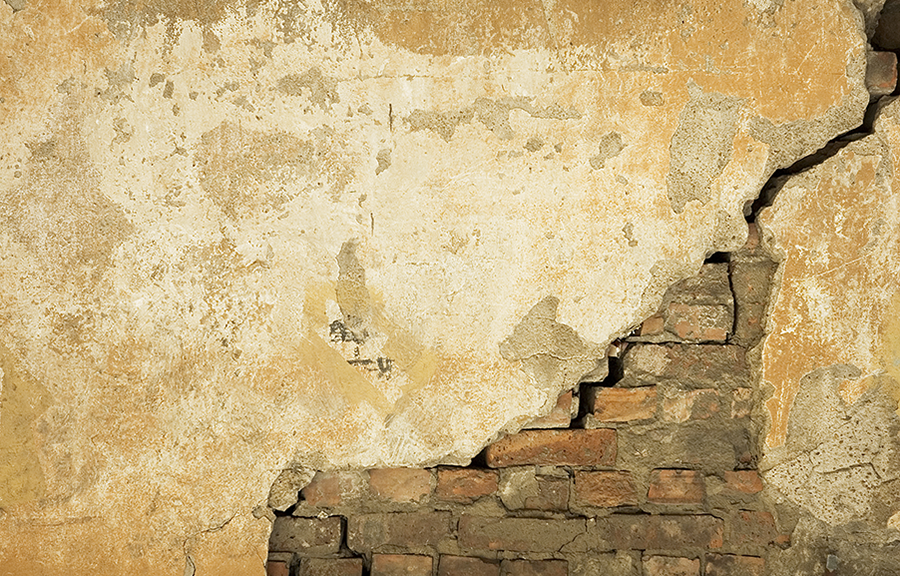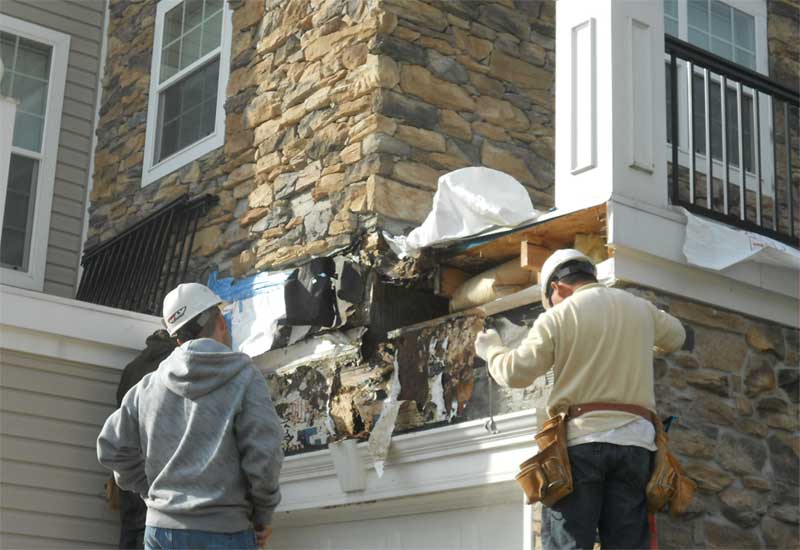In 1995 the California Legislature enacted the Calderon Act. It establishes various pre-litigation and dispute resolution procedures that an association must satisfy before it can sue its developer (aka, its “declarant”) for construction defects. These procedures are collectively referred to in this article as the “Calderon Process.” The Calderon Process is separate and distinct from the Builder’s Right to Repair Law (commonly known as “SB 800”); SB 800 is another statutory scheme that affects construction defects and the resolution of claims an association may have against its developer. (See “Builder’s Right to Repair Law (SB 800).”)
The following is intended to summarize and outline some of the more notable pre-litigation procedures and requirements under the Calderon Process which are codified under Civil Code Section 6000.
Notice to Members of Contemplated Civil Action Against Developer (Civ. Code § 6150)
In addition to the Calderon Process and the notice requirements discussed below, Civil Code Section 6150 requires an association to, at least thirty (30) days prior to the filing of any construction defect action (i.e., a lawsuit) against the association’s developer, provide its members with written notice that the action is being contemplated. (See “Notice to Members of Civil Action Against Developer.”)
Notice to the Developer
An association with twenty (20) or more units (or lots) must give a pre-litigation notice (a “Notice of Commencement of Legal Proceedings” or “NCLP”) to the builder, developer or general contractor. (Civ.Code §§ 6000(b), 6000(p)(3).) The NCLP is designed to initiate a process for the association and developer to engage in compulsory mediation before litigation can be filed.
Contents of NCLP – The NCLP must include: (1) the name and location of the project; (2) an initial list of defects, sufficiently detailed to put the builder, and/or subcontractor, on notice of the nature of the alleged defects; (3) a description of the results of the defects; (4) a summary of the results of any survey or questionnaire conducted or distributed to unit or lot owners and intended to ascertain the nature and extent of the defects; and (5) if a test of the defective conditions was conducted, a summary of the test results or the actual test results. (Civ. Code § 6000(b)(1)-(5).)
Statute of Limitations Issues – Service of the NCLP acts to toll statute of limitations for one hundred and eighty (180) days, which may be extended by written agreement of the parties. (Civ. Code § 6000(b)-(c).)
Obligations of Developer and Association After Service of NCLP
Developer May Request to Meet & Confer – After service of the NCLP, the developer has twenty-five (25) days to submit a written request to meet and confer with the association’s board of directors. The meeting must take place within ten (10) days after the developer’s request, at a mutually agreeable time and place. (Civ. Code § 6000(d).) This meeting (and any other meeting), may be conducted during executive session and anything said during the meeting is privileged and may not be admitted as evidence in a construction defect action unless the privilege is expressly waived, in writing. (Civ. Code § 6000(d).)
Developer Must Provide Access to Plans & Construction Documents – In addition to the forgoing, and within sixty (60) days of service of the NCLP, the developer must provide, upon request of the association, access to inspect and copy all plans, specifications, subcontracts, and other construction documents reasonably calculated to lead to the discovery of admissible evidence regarding the alleged defects. If any document is withheld because of an alleged “privilege,” the developer must note such “privilege” in a “privilege log” prepared and submitted to all parties. (Civ. Code § 6000(e)(1).)
Association Must Provide Access to Certain Association Records – Similar to the developer’s obligation to provide access to its documents, plans, etc., the association must provide the developer, and any subcontractor, with access to all association files reasonably calculated to lead to the discovery of admissible evidence regarding the alleged defects. This includes, but is not limited to, reserve studies, survey questionnaires (if any), test results (if any), and maintenance records. (Civ. Code § 6000(e)(1).) The association is afforded the same option of claiming privilege, and must follow the procedures outlined in the preceding paragraph.
Developer Must Notify Other Responsible Parties – Within sixty (60) days of service of the NCLP, the developer must provide notice to all subcontractors and design professionals, including their insurers, of the potential defect action. This notice is limited to those “whose potential responsibility appears on the face of the notice.” (Civ. Code § 6000(e)(2).) This notice must include, among other items of information not mentioned in this artice, all of the following: (1) a copy of the NCLP; (2) the date/time which the parties must meet and confer to select a dispute resolution facilitator (which is to occur within twenty (20) days after developer’s notice to all other responsible parties); and (3) and advisement to the recipient of his/her/its obligation to participate in the meet and confer process. (Civ. Code § 6000(e)(2).) The recipient of such this notice must acknowledge receipt prior to the date established for the meet-and-confer meeting. (Civ. Code § 6000(e)(2).) Insurance information must be given by the recipient within ten (10) days after acknowledging receipt of builder’s notice. (Civ. Code § 6000(e)(2).)
Selection of a Dispute Resolution Facilitator
In connection with the procedures outlined above, the parties must select a “dispute resolution facilitator” (“Facilitator”). The Facilitator is typically an attorney or retired judge retained by the parties to preside over the mandatory mediation. The primary purpose of the Facilitator is to promote the fair resolution of the dispute. To that end, the Facilitator must be knowledgeable in construction defect claims, and must have sufficient time to devote to the case as he or she is likely to spend a considerable amount of time with the parties. (Civ. Code § 6000(f)(1).)
Case Management Meeting with Facilitator
Within one hundred (100) days of service of the NCLP, the Facilitator must convene a case management meeting. (Civ. Code § 6000(f)(1).) The purpose of the case management meeting is to create a case management statement, which establishes various obligations and rights of the parties with respect to, for example, non-intrusive and invasive testing. (Civ. Code § 6000(h)(1)-(8).) With the help of the parties, the Facilitator will establish completion deadlines for each of the elements contained in the case management statement. These deadlines may be extended by mutual agreement of the parties, which will usually require the parties to extend the one hundred and eighty (180) day dispute resolution time limit imposed by Civil Code Section 6000(c). (Civ. Code § 6000(j).)
Developer Settlement Offer & Notice to Members
At any time during the dispute resolution process, and as determined by the Facilitator, the developer may request a meeting with the association’s board of directors to discuss a written settlement offer. (Civ. Code § 6000(k)(1)(A).) The meeting must occur within ten (10) days after the develper submits a request to the association. (Civ. Code § 6000(k)(1)(C).) The written settlement offer must contain: (1) an explanation of the reasons for the terms of the offer; (2) a statement affirming that the builder has sufficient funds to satisfy the offer; and (3) a summary of test results (if any testing has been conducted). (Civ. Code § 6000(k)(1)(A)(ii)-(iv).)
Rejection of Settlement Offer – If the board decides to rejects the settlement offer, it must hold a meeting open to the membership of the association at least fifteen (15) days prior to filing a construction defect action against the developer. (Civ. Code § 6000(k)(1)(D).) Additionally, and at least fifteen (15) days prior to the meeting, the association must provide owners with notice of the meeting, and said notice must contain the following: (1) a statement that the meeting is being conducted for the purpose of discussing defect problems that may result in the filing of an action against the developer; (2) the options available to the association to address the problems (and how the association anticipates financing those options); (3) a complete copy of the written settlement offer; and (4) a concise statement explaining the specific reasons for the terms of the offer. (Civ. Code § 6000(k)(1)(E).)
Acceptance of Settlement Offer – If the association decides to accept the settlement offer, the board must notify the membership of the settlement. This notice must include: (1) a statement that a settlement has been reached; (2) a description of the defects to be corrected under the agreement; (3) a good faith time estimate as to when the defects will be corrected; and (4) the status of other defect claims not covered by the settlement agreement (if any). (Civ.Code § 6100.) This notice may be amended, as required (Civ.Code § 6100(b)), and such amendment does not waive any privilege attached to the information (Civ.Code § 6100(c)).



